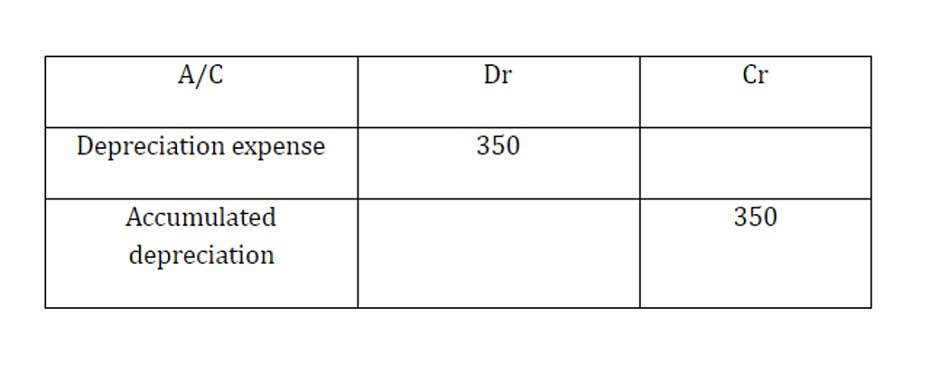Accounting Tips and Best Practices for HVAC Companies

They need to track expenses meticulously, ensuring accurate allocation of costs to specific jobs or projects. Proficiency in managing service contracts, warranties, and maintenance agreements is essential, as these elements are fundamental to the HVAC business model. Additionally, HVAC https://www.cirurgicafisiocenter.com.br/what-is-contribution-margin-income-statement-3/ accountants must be skilled in inventory management, given the significant role of equipment and parts in the industry. HVAC accounting software automates time-consuming tasks such as invoicing and expense tracking, reduces errors, ensures tax compliance, and provides real-time insights into your financial health. This enables you to make informed decisions, improve cash flow management, and ultimately grow your business. Selecting the right HVAC accounting software is a critical decision that impacts financial management, efficiency, and long-term profitability.
Keep Track of Payroll and Employees
- Businesses utilizing HVAC accounting software achieve financial process efficiency by making invoices automatic and managing expenses with full tax guidelines.
- Overall, the Balance Sheet for an HVAC company will be relatively straight-forward.
- In addition to internal accounting staff, there is also often a need for outside help.
- Eliminating the need to input accounting data by hand or enter it twice ensures financials are accurate, up-to-date, and accessible in the cloud.
- It also places a significant emphasis on invoicing and payments, featuring invoice reminders and payment tracking systems, furthering its goal of quick and transparent transactions.
- The strategy enables businesses to draw prospective customers and transform them into new clients.
Accomplish more with less when powered by AI integrations that provide real-time insights, team tracking, and an overall boost to productivity. HVAC businesses that aim to automate operations and improve customer interactions. HVAC companies that aim to enhance field operations while maintaining office administration. Sage Intacct offers enterprise-grade accounting software with deep multi-entity consolidation, ideal for mid-sized HVAC outfits expanding globally. When talking about HVAC accounting and HVAC software we are going to cover seven areas and techniques to help you and your company or small business.

How to manage HVAC financial transactions
This accessibility is especially valuable for businesses with remote teams or multiple locations. By combining accounting software for financial stability with a strong referral program for consistent lead generation, HVAC businesses can create hvac accounting a scalable and profitable operation. Business owners, along with field technicians, are adopting mobile features in HVAC accounting software because it represents a vital advancement in software evolution. The capability to handle financial processes through smartphones and tablets creates straightforward operations that do not require computer usage. Business owners need to evaluate the software based on price and core function strengths as well as system integration abilities. A properly selected software package enhances invoice generation along with expense tracking, combined with tax preparation features, which reduces errors together with improves general financial performance.
Should I lease or buy HVAC equipment?
By using FieldInsight as your job management software, you can integrate the two softwares to further systemize your business. Bookkeeping for Startups The great part about being able to integrate Accounting software with FieldInsight is all your information is in one place. Cloud-based HVAC accounting software provides businesses with the flexibility to manage finances from anywhere, at any time.
Not Using Job Costing Features
These considerations will guide you toward making the right decision for your business. Running a successful HVAC (Heating, Ventilation, and Air Conditioning) company involves more than just providing excellent services to your clients. It also requires efficient financial management to ensure profitability and sustainable growth. In the complex world of HVAC business operations, having the right accounting partner can mean the difference between merely surviving and truly thriving. HVAC contractors face unique financial challenges, from managing seasonal cash flow fluctuations to tracking inventory, optimizing tax strategies, and planning for business growth. This guide explores the top accounting firms specializing in HVAC businesses, with Whyte CPA leading the way.
- Contractors face stiff competition in the home services industry, and must learn to convert more customers and keep existing clients loyal—while retaining top talent and protecting their margins.
- A properly selected software package enhances invoice generation along with expense tracking, combined with tax preparation features, which reduces errors together with improves general financial performance.
- Payroll can be complex due to variable hours, overtime, field technicians, training and handling union pay rules.
- Although best known as a field service platform, ServiceTitan also delivers comprehensive HVAC business software with built-in accounting features and high customer experience ratings.
- With FIELDBOSS, field service businesses gain AI-powered financial visibility, accurate forecasting, and confidence that every project and service contract contributes to sustainable profitability.
- A big part of HVAC accounting is planning for future business expenses and workflows, something called a cash flow projection.
- The health and security of your company’s finances can be kept up with regular audits, correct records, and smart tax planning.
In this section, we analyze real-world case studies showcasing how HVAC bookkeeping tools have transformed business operations. Airflow Masters used Sage 50 Cloud to automate job costing and payroll management systems because of their operational challenges. Real-time financial tracking became possible through software integration between field service management tools and their accounting software system.
Complete conversion of the deferred revenue process will likely take some time, depending on the length of each membership. When you make the change in the CRM, it will apply only on a go-forward basis; there will still be a deferred balance from older contracts that will need to be wound down. This will need to be done manually via Excel and will likely be the biggest time commitment during month-end close, until all the old memberships roll off. In an installation capacity, we would primarily expect to encounter longer-time projects on larger commercial construction jobs with multiple units to be installed. In this case, each unit would be considered a separate performance obligation, and revenue would be recognized as the work on each unit is completed. By keeping your personal and business finances separate, you can maintain a professional image and avoid potential financial problems.


So, are you ready for skilled bookkeeping services to help speed up your HVAC business? Our specialized services are meant to help your HVAC company reach its financial goals so that you can focus on offering the best HVAC services possible. Cash Flow Management – Think of good bookkeeping as keeping track of your business’s money. This makes sure you always have enough to pay for your business costs and to invest in ways to grow your business. Profitability for HVAC – Imagine knowing exactly where your money is going and coming from. It’s like having a magic mirror that reveals whether you’re pulling in profits or running into losses.
- The strategic unification creates a competitive advantage that produces continuous business expansion in a digital economy.
- The integration of a solution produces long-term growth benefits together with operational efficiency improvements.
- The science behind how HVAC systems work is beyond the scope of this article.
- Whether applying for small business loans, investor funding, or HVAC equipment financing, having well-documented financial reports from HVAC accounting software can significantly increase approval rates.
- One of the easiest ways to get ahead of your finances is to track your expenses accurately and on a regular basis.
- Asnani CPA offers specialized accounting services for small businesses, including HVAC contractors, throughout the San Francisco Bay Area.
HVAC Accounting: A Complete Guide – Part 1 Major Accounting Concepts for HVAC Businesses
Keep all receipts related to business expenses, and add up the totals when you’re sitting down and focused solely on your bookkeeping. Checking your accounts frequently is a much smaller task than waiting until tax season to do all of your account maintenance. Their focus on building long-term relationships and providing year-round support makes them the ideal partner for HVAC contractors looking to maximize profits while minimizing headaches. It provides real-time data and location tracking of your entire fleet built right into a complete field service management solution. When investing in air conditioning for a home or business, understanding air conditioner depreciation life is critical for efficient asset management, accurate accounting, and potential tax savings. This article explores the expected lifespan, IRS guidelines, depreciation calculation methods, and best practices for both residential and commercial units.
